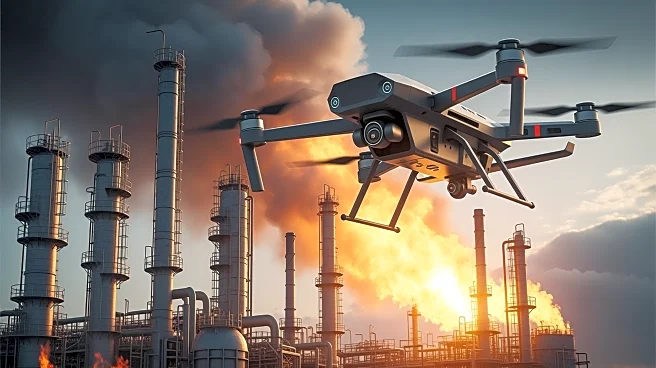What's Happening?
Ukrainian President Volodymyr Zelensky has intensified drone attacks on Russian oil refineries, leading to a significant drop in Russia's fossil fuel exports. The Centre for Research on Energy and Clean Air reported a 26% decrease in Russian oil exports in September
compared to the previous year. These attacks have targeted key oil facilities, including a terminal in Crimea and refineries in the Leningrad region, disrupting crude oil production and export.
Why It's Important?
The reduction in Russian fossil fuel exports is a strategic move by Ukraine to weaken Russia's economic capabilities, which are crucial for funding its military operations in Ukraine. This development could have far-reaching implications for global energy markets, particularly for countries heavily reliant on Russian oil. It also highlights the increasing use of drone warfare in modern conflicts, raising questions about the future of military engagements and international security.
What's Next?
As Ukraine continues its drone campaign, Russia may seek to bolster its defenses and explore alternative export routes to mitigate economic losses. The international community, including major oil-importing countries, will need to assess the impact on global energy supplies and consider potential diplomatic interventions to de-escalate the conflict. The situation remains fluid, with potential for further military and economic repercussions.















